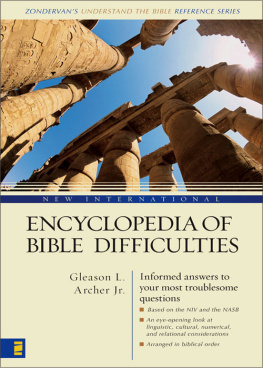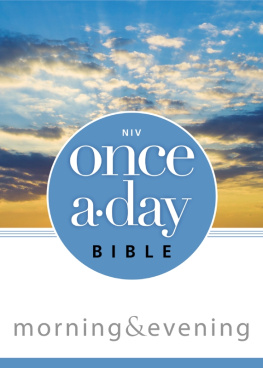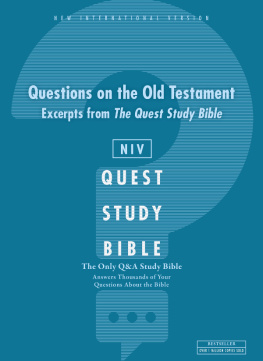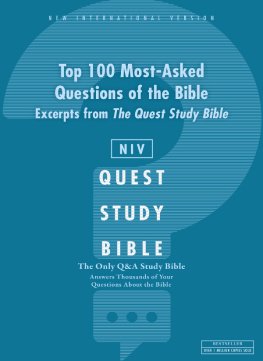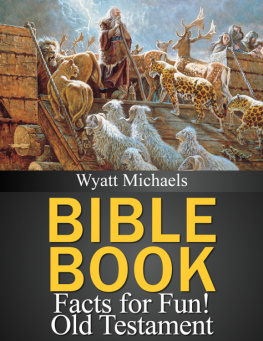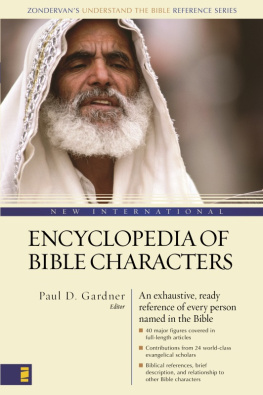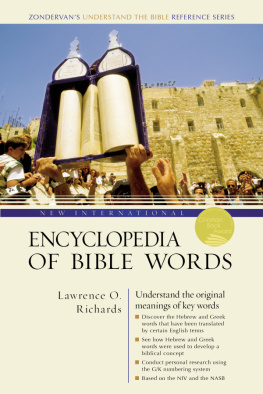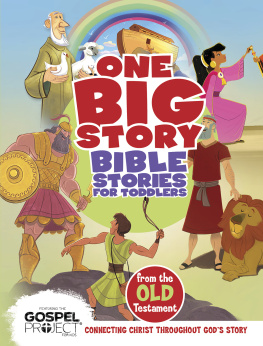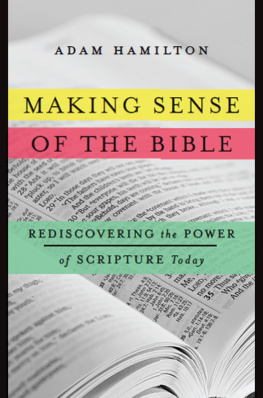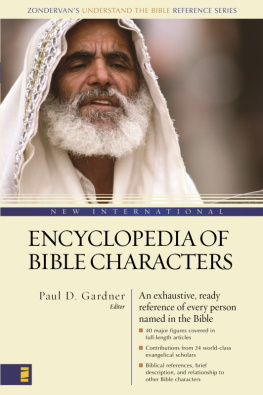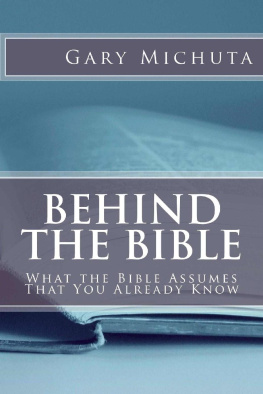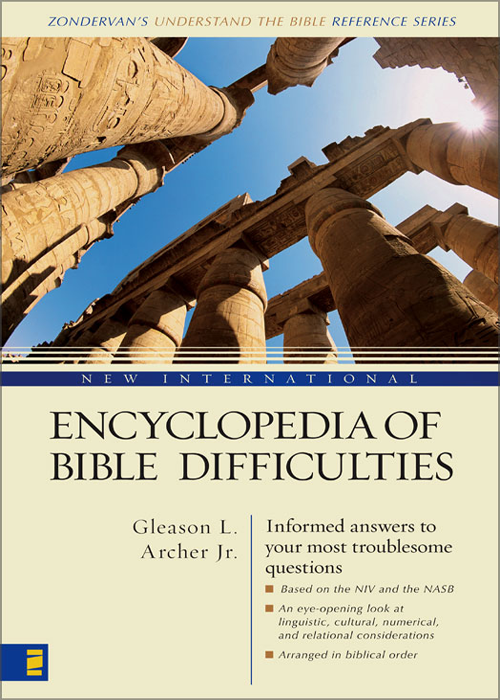Gleason L. Archer
Dr. Gleason Archer has written this encyclopedia to show that there is nothing in the Bible inconsistent with the claim that it is the inerrant Word of God. In the last century this doctrine has increasingly come under sharp criticism. Unfortunately Christians who oppose the doctrine of biblical inerrancy usually misunderstand it. In most cases they gleaned their view of what it means from an uninstructed Sunday school teacher or an overenthusiastic radio preacher. Perhaps they have never had the occasion to consult the work of a serious-minded scholar. Readers will soon discover that the view of inerrancy set forth by Dr. Archer is the historical position of the church in all of its major branches. Behind it stand the illustrious names of Augustine, Aquinas, John of Damascus, Luther, Calvin, Wesley, and a host of others. Put quite simply, this view of inerrancy holds that the Bible tells us truth and never says what is not so.
It might be helpful to begin by dispelling some of the most common misunderstandings of biblical inerrancy. Evangelicals do not try to prove that the Bible has no mistakes so that they can be sure the Bible is the Word of God. One might prove that a newspaper article is free from all mistakes, but that would not prove that the newspaper article is the Word of God. Christians hold the Bible to be the Word of God (and inerrant) because they are convinced that Jesus, the Lord of the church, believed it and taught His disciples to believe it. And ultimately their conviction of its truth rests on the witness of the Holy Spirit.
Likewise evangelicals do not hold that inerrant inspiration eliminates the human element in the production of the Bible. True, evangelicals have stressed the divine authorship of Scripture because this is most frequently denied and it is this that gives Scripture its unique importance. But informed evangelicals have always insisted on a truly human authorship of Scripture. Even those who were willing to use the word dictation (as did Calvin and the Tridentine Council of the Roman Catholic church) always made very clear that they were not referring to the model of a boss dictating to a stenographer. Rather, they meant to stress the divine (as well as human) responsibility for the words of Scripture and that the inscripturated words are just as truly Gods authoritative words as though He had dictated them.
One could argue (illogically) that God could prevent the biblical writers from error only by eliminating their freedom and their humanity, but evangelicals have not so argued. Rather, the Bible is both a thoroughly human and a thoroughly divine product. As a divine product it possesses absolute authority over the minds and hearts of believers. As a human product it displays within itself all of the essential marks of its human writing. No doubt God could have given us a Bible in the perfect language of heaven, but then who of us would have understood it? He chose to communicate his will to us through the imperfect medium of human language with all its possibilities for misinterpretation and misunderstanding. On the other hand the gift of language is one of our most trustworthy means of communicating our wishes and our ideas to one another. God, therefore, chose to communicate to us through this imperfect instrument of human language.
In writing the Bible, its authors used figures of speech, allegory, symbolic language, and the various genre of literature employed by other human authors. Moreover, because they wrote in the language of the common man of two or more millennia ago, they frequently chose not to provide specific technical data where that was not important to their purpose. Never do they speak in the vocabulary of modern science. They felt no more obligation to be precise and exact in many of their statements than we do in our ordinary conversation. Divine inspiration guaranteed only the truth of what they wrote. God preserved them from error both of ignorance and of deception. But He did not prevent them from speaking as humans. And only if we take the ridiculous and self-contradictory position that error is essential to all human speaking and writing, can we insist that the true humanity of Scripture necessarily carries with it false statements. While preserving their full humanity, with all that implies for the character of their writing, the Holy Spirit kept the writers of the Bible from making erroneous statements. As a result we do not need to pick and choose what is taught in Scripture. All of it is Gods truth.
The attempt, like Dr. Archers, to show that there are no mistakes or false statements in the Bible is frequently objected to from opposite viewpoints. One asks, "Why bother to defend the Bible? You do not defend a roaring lion from a mouse. Nor should we place ourselves in the false position of defending the Scripture. We need only to unleash it. It will conquer by its own power without our feeble endeavors to support it.
But the faith of some troubled souls is hindered by misunderstanding the Scripture. They are confused by what seems to them to be false statements or self-contradiction. We need, therefore, to clear away such false obstacles to faith. If there remains any obstacle to faith, it should be the stumbling block of the cross or the cost of discipleship rather than an imaginary obstacle that could easily be eliminated. In spite of what we sometimes hear, God never asks us to crucify our intellects in order to believe.
A second objection to dealing seriously with alleged discrepancies and mistakes in the Bible comes from the opposite position that it is not worthwhile to do so because it is perfectly obvious that the Bible is full of errors. There is no uniformity in the way in which this second type of judgment comes, but all forms of it stem basically from too little faith in the Bible. World-famous theologian, Karl Barth, for example, declares that the Bible shouts from the housetop that it is a human book and that an essential part of its humanity is to err. Others hold that the Bible is a book God inspired in order to give us religious truth but not precise facts of science and history. To waste time defending the Bible in these latter areas is to do it a disservice, they say. It diverts attention away from the real purpose of the Bible, which is rather to instruct us in spiritual and moral matters. A variant of this position is that the purpose of the Bible is to lead us to the personal truth of Christ. The Bible may be wrong on many points, but it points to the Savior; and to focus attention on points of geography, history, astronomy, and biology is only to divert it from its true goalpersonal faith in Christ.
Of course, there are also others who hold that the Bible is full of errors because its authors were simply children of their times. Miller Burrows, former professor of New Testament at Yale University, accurately summarizes this rather typical modern viewpoint: "The Bible is full of things which to an intelligent educated person of today are either quite incredible or at best highly questionable. The protracted struggle of theology to defend the inerrancy of the Bible (i.e. its complete truth) against the findings of astronomy, geology, and biology has been a series of retreats ending in a defeat which has led all wise theologians to move to a better position. (

